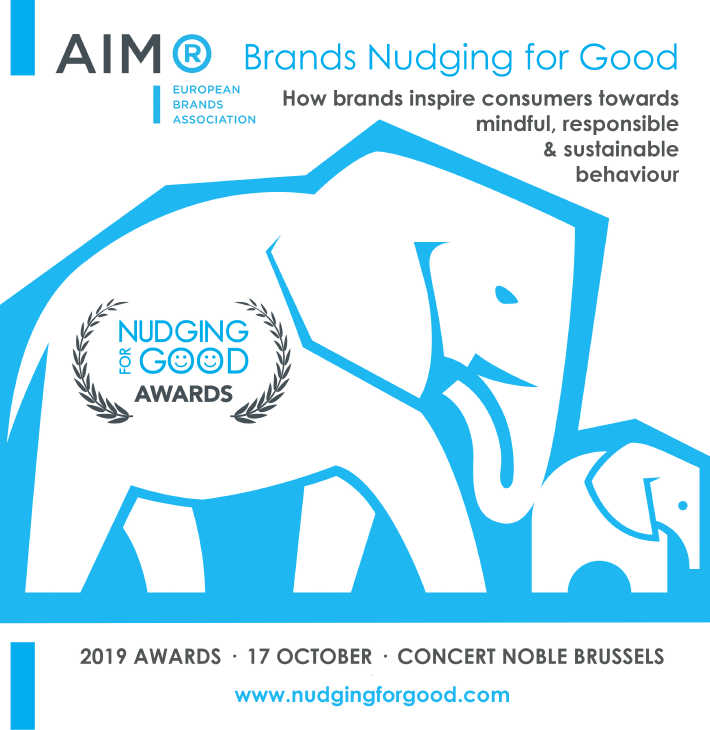Innovative ways to improve or shift behavior
Norms of how to behave often go unquestioned. Policy makers, organizations as well as companies can encourage people to adopt more responsible and sustainable lifestyles or shift behavior to improve hygien and health.
Cow-for-toilet competition
To address the challenge of open defecation, the Ugandan government launched a sanitation fund to promote the construction of toilets in rural communities. The Uganda Sanitation Fund (USF) was implemented by the Environmental Health Department within the Ministry of Health and supported by WSSCC to promote the demand for sanitation facilities and creative toilet solutions in rural communities. The program targets some 5.6 million people living in more than 9,000 villages throughout 44 of Uganda’s 138 districts. Since its launch in 2011, toilet and latrine coverage in USF-supported districts has risen to 94% in 2019, according to Ministry of Health data.
In the town of Bulegeni in Uganda’s eastern border district of Bulambuli, the cows were chosen as prizes in a latrine-building competition. To win, the latrines not only had to be the best and the cleanest, but also made from local materials.
“We have used banana fibers for the roof, and cow dung on the walls and even on the floor,” said Stephen Mwanga, mayor of Bulegeni.“ We decided that since we have low incomes, we should use local materials to build latrines.” Amid cheers from villagers, Mwanga names 67-year-old Dafina Muzei as winner of the 2019 competition claiming, “she far exceeded the competition criteria.”
Near the market, there is a sign that stands tall, proudly declaring the town to be open defecation free. Like many other regions in Uganda, where 80% of the population has no access to basic sanitation services, Bulambuli has faced outbreaks of waterborne diseases before, including at least two cholera outbreaks in the last five years, according to Dr Gidare Muiri Mudaya, District Health Officer.

Positively influencing behavior through nudging
Companies do have an important role to play in society which goes beyond the core value of their products and services. One way is through nudging, which means positively influencing how people behave based on insights on human behavior.
Nudging plays and important role in Marie-Eve Laporte’s teaching and research. Laporte is an Associate Professor at Sorbonne Business SchooI and she believes that companies should take a position and engage in changing attitudes and behavior for the better.
Nudging
Nudge comes from the academic world of behavioral economics and looks at influencing people’s behavior positively and without constraints. According to Richard Thaler and Cass Sunstein, a nudge is, “any aspect of the choice architecture that alters people’s behavior in a predictable way without forbidding any options or significantly changing their economic incentives”. From a brand perspective, nudging is a way for a brand, on the basis of consumer insights, to make it easy and desirable for consumers to change behavior or habit and adopt a healthier or more sustainable one.
“Either way, companies and brands impact people’s behavior”, explains Laporte. “How we perceive brands and marketing has changed. It is about creating shared value, that is not only for the company and the consumer but also for society at large.”
Laporte is also a member of the jury of the Nudging for Good Awards, an initiative of AIM (the European Brands Association). The Nudging for Good Awards aim to inspire brands, promote the Nudging for Good concept, and showcase great initiatives.

Marie-Eve Laporte
Associate Professor at Sorbonne Business School and a Senior Lecturer in Management Sciences. She teaches quantitative studies, marketing and communication in MBA and master. Member of the Scientific Council of Chaire Marques & Valeurs, her research focuses on three areas: consumer eating behavior, health marketing and the digital transformation of marketing. Marie-Eve Laporte previously worked as a marketing and quality director in the food industry.
“I admire companies and brands that dare to take a stand. Companies used to say that marketing simply reflects society as it is, but now they show how society could or should be. Having said that, companies need to ensure that their values and actions are in tune, otherwise what they do may come off as insincere”,
says Laporte.
In the Nudging for Good Awards 2019, Essity’s Hungarian brand Zewa was the winner of the Society category. Laporte explains why the jury selected Zewa and its Hygiene Has No Gender campaign: “We considered the nudge itself and the ethical aspects of it. We looked for an initiative that had the potential to benefit all of society. Zewa highlighted gender inequality through the eyes of children, which was very powerful. When we see kids being treated unfairly, we react because we do not want to pass on inequality from one generation to the next. Finally, it was clear that promoting equality is very much part of Essity’s and Zewa’s DNA.”
Some argue that brands should not take a stand in political and societal issues. Laporte does not quite agree. “It is true that companies are not elected, but we are able vote with our wallets. So, in that sense there is freedom of choice and brands are either chosen or not.”
